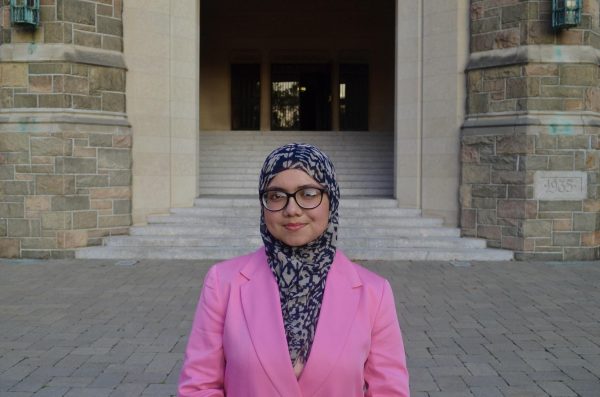Company layoffs have become increasingly common over the past few years, occurring on a much larger scale than ever before. There have been a couple headlines here and there, but now we see it affecting the technology industry in full blast: according to CNN, over 13,000 tech employees have been laid off in the last year. It’s easy to turn the blame toward artificial intelligence (AI) right away, given its constant evolution and steadily rising popularity. AI has become a larger topic of concern in our day-to-day lives, whether it be in relation to our education or our careers. When products of the tech industry start impacting the people working in it, that’s when it becomes a much more serious issue.
Major companies like eBay, Google, Duolingo and Amazon have been part of the problem, with each of their mass layoffs leading to the overarching 13,000. Each of these companies have laid off some of their employees, and Google CEO Sundar Pichai even warned employees to be looking out for future layoffs as well, as if the current “trimming” wasn’t enough. “We have ambitious goals and will be investing in our big priorities this year,” Pichai shared, with the “big priorities” in question being a redirection toward advanced AI and beyond. He elaborated on how it was only certain areas of the company that were facing changes, and how some would stay constant. While claiming to provide support to laid off workers, the question of “why?” arises. Why lay off so many employees, and why hire more?
From the perspective of a college student, this is scary. The tech industry already seemed tough to get into because of the competitive nature among people with varying levels of experience, and it’s even worse with the addition of AI. Jasmin Marte Lopez, FCRH ’27 said, “It’s so hard for computer science majors to find jobs after graduating… I’m worried but I feel like as long as you try hard to get internships, it’ll be worth it because you’ll have a higher chance to find a job after graduating. Some people might leave applying for jobs last minute.” Marte Lopez is double majoring in computer science and mathematics, so this is a topic that might just impact the way she’s been thinking about her career.
While AI isn’t the only reason behind this mass shift in the industry, it certainly does attract the most attention and seems to carry the most influence as it grows. Not to mention the fact that AI isn’t perfect, so who’s going to be regulating it to ensure the best for the company’s future? “I also think about how the people who created AI are in the same way computer science people, if that makes sense? AI has a lot of problems, so if anything we need to fix it,” Marte Lopez added. “You ever try ChatGPT and they just don’t know what’s going on? Someone needs to fix it.” Rather than decreasing the number of employees, keeping AI in check creates the opportunity for more job opportunities to balance out the ones being lost. Maybe not completely, but it would be a step forward rather than letting so many employees go all at once. The state of AI without such regulation will continue to deteriorate and will cause employers to realize soon enough that they do in fact need human workers in their company to be more efficient. Stacey Cajita, GSB ’24 is an information science major, and said, “I don’t really think that AI is going to remove computer science jobs necessarily, because all AI needs developers and it’s completely unregulated and buggy right now. I do think these layoffs are temporary. The companies that believe they can remove their computer science workforce and replace them with AI aren’t really thinking right. AI is so flawed and I think they’re gonna have to go into a hiring spree once they realize.”
Adding on to Cajita’s point, factors like hiring sprees also play into layoffs down the line, in addition to COVID-19 and the state of the economy in the last year. During the COVID-19 pandemic, companies started overhiring to match the surge in online activity as everything transitioned to being remote. When things started shifting back to normal, these companies were faced with extra employees, who were then part of those laid off. The problem here is that these employees weren’t just entry-level, but seasoned developers who were paid high salaries for their work. It isn’t right to remove someone more experienced from a company simply because there are too many people. “I think the whole layoff thing is just companies being completely blindsided by COVID-19, the economy and AI all at once,” Cajita adds, and she’s right. The economy faced its downturn in July 2022, and the war in Ukraine led to tech companies turning toward layoffs as a method of staying afloat while revenue decreased.
As someone who entered college as an undeclared major with a mindset of majoring in computer science, this leads me to reconsider my choices. How will things change by the time I’ll be looking for internships and jobs in a few years? Will companies realize that AI is not the long term answer for their advancement, or will job opportunities continue to rise in scarcity for those seeking to enter the industry? Will it just be entry-level positions that face this, or will the door also shut for those who’ve been specialized in the industry for years? So now, not only do I have to decide on my major, but I also need to consider the availability of job opportunities in said industry.
Haniyyah Usmani, FCRH ’27 is undecided from The Bronx.











































































































































































































